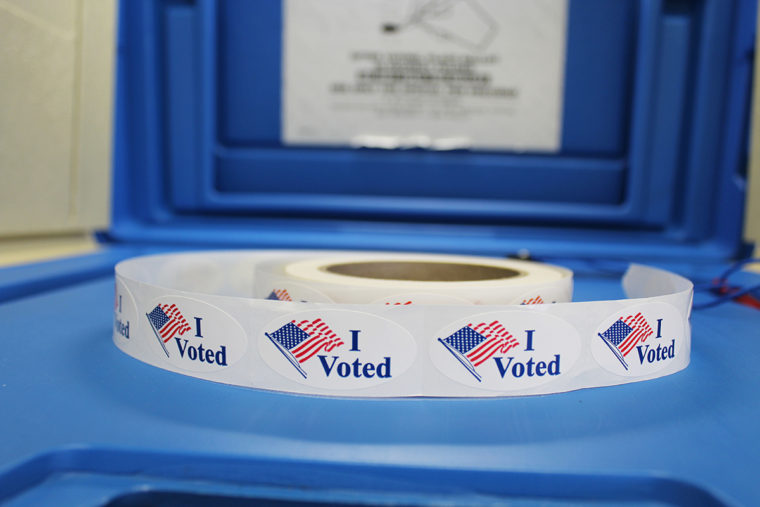As the November presidential election approaches, an expert at Washington University in St. Louis says to expect a bit of emotional angst, no matter who wins or loses.
“Elections are important from a policy standpoint, but they also represent competition between the strong group identities of political parties,” said Lamar Pierce, associate professor of organization and strategy at Olin Business School. “Although an election might affect someone’s happiness because of its implications for policy, it also might induce sadness simply because their group’s candidate lost.”

Pierce, along with co-authors from the Harvard Kennedy School and the University of California at Los Angeles, examined data from thousands of online surveys conducted by CivicScience, an online polling and market research company. The research compared the happiness levels reported by people who identified with a political party in the days leading up to, and just after, the 2012 presidential election. The researchers found the pain of losing an election is larger and more impactful than the joy of winning, but the agony of defeat was surprisingly short-lived.
“Within three or four days the losers were back to their pre-election happiness levels,” Pierce said. “What this strongly suggests is that this is like losing the big game. It feels devastating and then several days later, life moves on.”
For comparison points, Pierce and his co-authors applied the same methodology to two national tragedies: the Boston Marathon bombing and the Sandy Hook shooting. The emotional dip that resulted was far smaller than the effect of a partisan election loss, with two notable exceptions: those who had children, who were distinctly less happy after Sandy Hook; and Boston residents, who had similar emotional responses after the marathon bombing. Pierce says the difference reveals the strong role of partisan identity to a person’s self and well-being.
“The magnitude of effects that we see around the election are not trivial,” Pierce said.
However, they might be changeable. Pierce points out that different factors are at work this election cycle that could very well yield different results as opposed to those observed in 2012.
“I think many people have very strong opinions about what the real policy impact would be in this election,” Pierce said. “You might get a different result in this case, but certainly in 2012 it was a very temporary effect.”
Pierce’s research appeared in the Journal of Experimental Political Science. He is available for interviews and may be reached at pierce@wustl.edu.

Comments and respectful dialogue are encouraged, but content will be moderated. Please, no personal attacks, obscenity or profanity, selling of commercial products, or endorsements of political candidates or positions. We reserve the right to remove any inappropriate comments. We also cannot address individual medical concerns or provide medical advice in this forum.